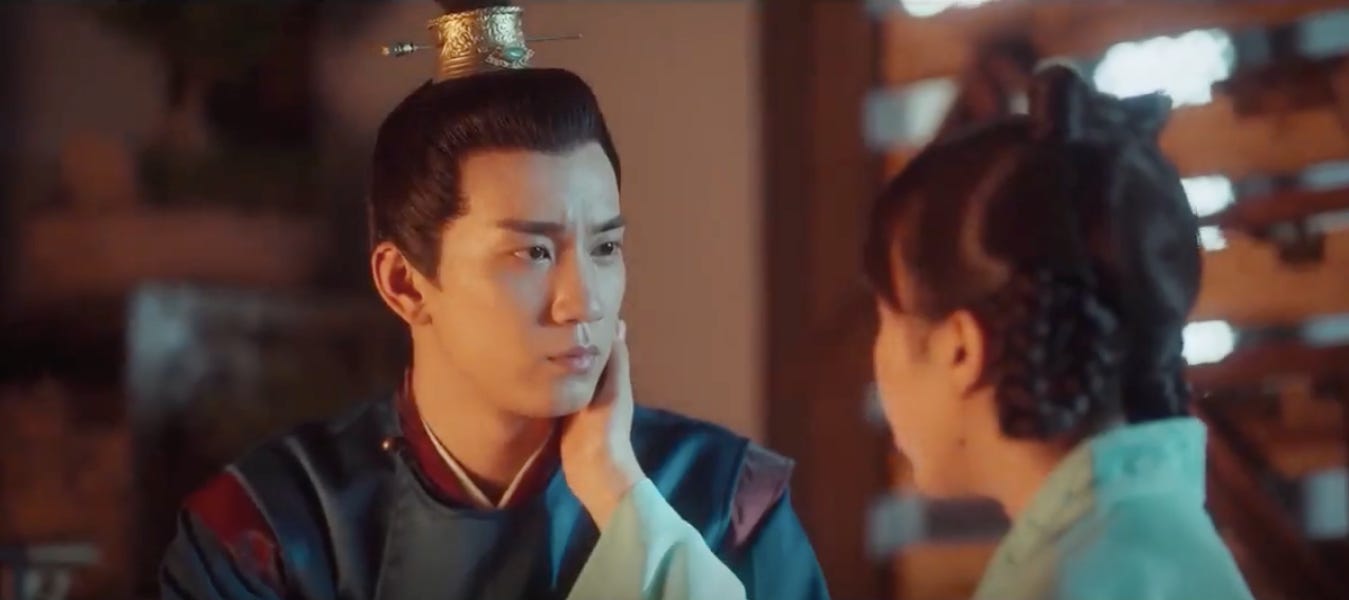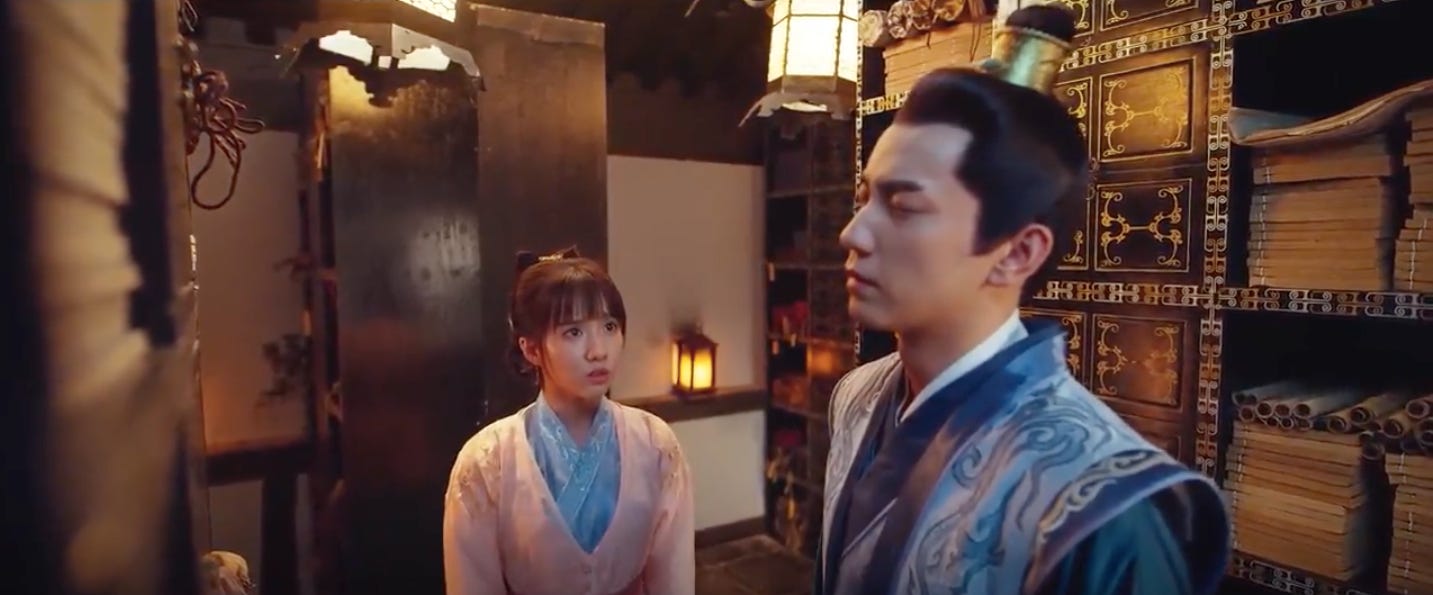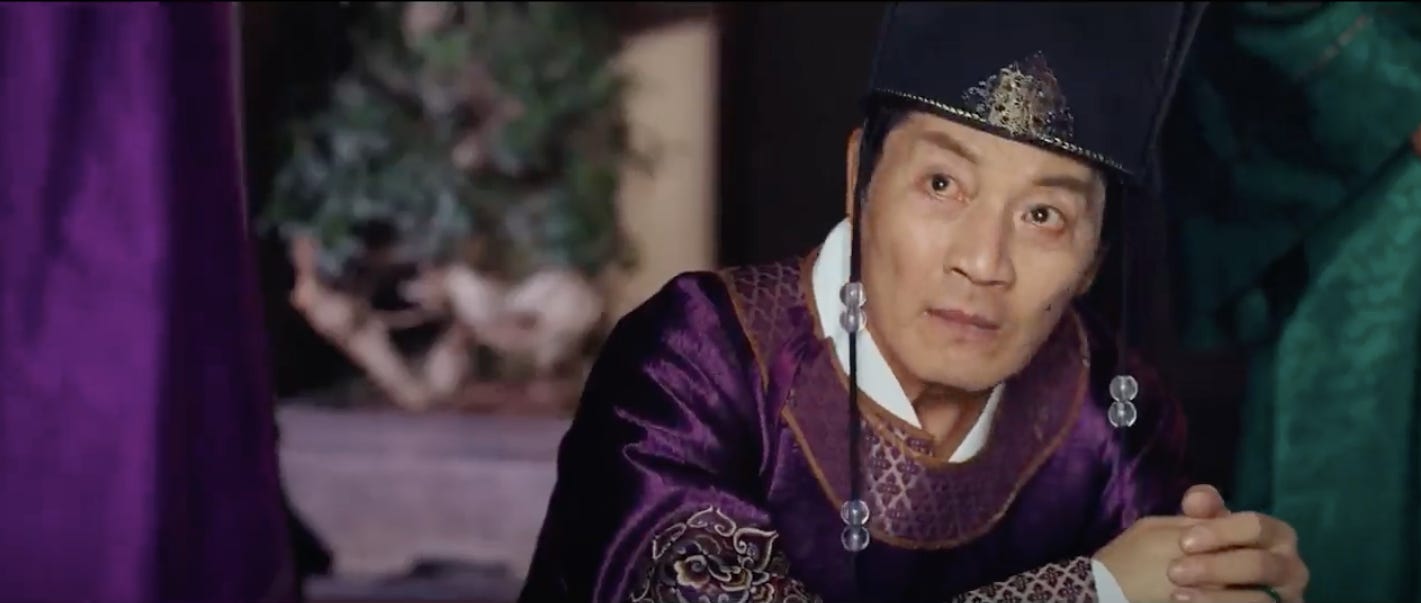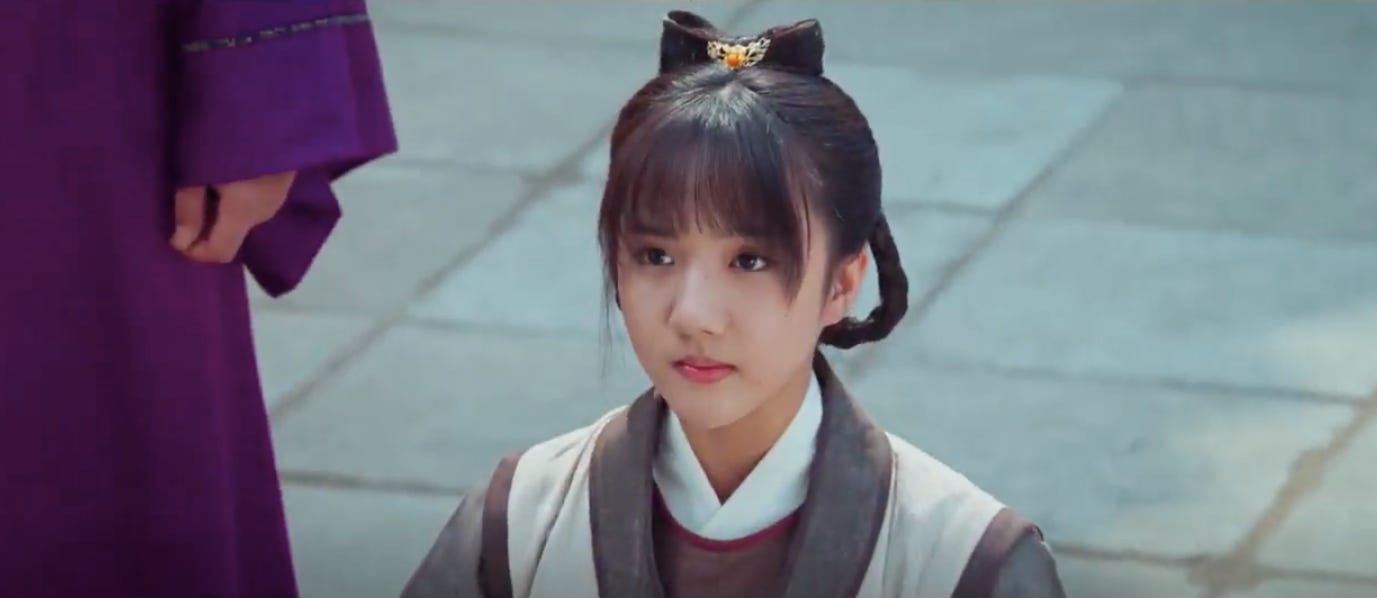The Imperial Coroner (2021) A Cinderella story with corpses
Spoiler alert for Episodes 31-36
The jury is in and this is my verdict: Nerds rule. And the man at the top of the food chain gets to hang on to his job. Until some else comes along to make a grab for it.
I could leave it at that but that would scarcely do this terrific well-written crime/procedural series justice. The ending is almost a relief because it’s a good resolution that ties up all loose ends: the coroner and her commandery prince finally dismantle the conspiracy that’s dogged them once and for all, achieving their happily ever after. Until the next one comes around to keep them busy.
Buried under this body pile-up is a Cinderella story but in this the leads rumba around corpses and criminals. In fact Cinderella is an appropriate analogy because in some versions of the fairytale a girl called Ella was so nicknamed because she spent much of her time near the cinders. In other words, she was grubby because she did all the menial tasks and slept by the fireplace. Her place in the household was that of a servant even though she was the daughter of some nobility/privilege. Likewise, in this context, coroners are considered outcasts in that world because they handle the dead. They do the “dirty work” of examining and dealing with the dead. As a result they are walking taboos — mocked, humiliated and despised. As is the case of servants in wealthy households, the work that they do is indispensable in the cause of justice even if forensic pathology is a fledgling specialization appreciated by only a select few.
Like Cinderella of old, Chu Chu’s hidden qualities are not appreciated until she meets her prince. In that society, she is defined by her occupation which determines her social status. But her fateful encounter with the prince in her story, the figure who will become her de facto fairy godfather, Jing Yi shrewdly cottons on that this young lass from distant rural Qianzhou is a perfect match for his friend. Despite initial misgivings, Jinyu the head of the Three Judicial Offices sits up and takes notice of this talented young woman. As Jing Yi envisages (and hopes), these two nerds eventually fall in love despite any kind of conventional objections that could be levelled at prospects of such a union. Anachronisms abound but once you get past the first, it seems par for the course.
Jinyu is right to be suspicious of Chu Chu’s origins as he’s right about much of what transpires in the story. She has her own birth secret and there may be skeletons in the family graveyard that are crying out to be examined. She soon becomes instrumental in the unravelling of that mystery and others related to the disappearance of Xiao Heng, Princess Xiping’s consort and a sordid conspiracy to frame an army general and his men for rebellion against the throne all those years ago. Very little time is wasted on unnecessary diversions or interludes. Nothing is out of place. The show always keeps the main thing the main thing.
It isn’t that coincidental that Chu Chu with questionable parentage grows up as Xiao Heng’s unofficial protege. He fills her head with stories of cases he’s been involved in and inspires her to be a crime fighting coroner. He’s a significant father figure to her. On the other hand, Jinyu may officially be Xiao Heng’s son and heir, his ancestry belongs elsewhere. His own mentor is Xue Rucheng recently promoted to Minister of War (or Troops) is both teacher and father to a fatherless Jinyu. Xue Rucheng himself is an orphan who has risen through the ranks as a scholar.
Unlike Cinderella, blood relationship doesn’t determine treatment of the motherless. It speaks well of adoptive families in that regard. Family is often not about biological connections. Whoever Jinyu’s biological parents are, he is Xiao Heng’s true heir as the Handsome Judge. His investigative prowess in not necessarily inherited but accumulated through learning and all the privileges afforded to him as the adopted son of Princess Xiping and relative of the emperor. There’s no denying his own natural intelligence. Chu Chu, the daughter of a general, is raised by kindly competent coroners who plucked her out of her deceased mother’s womb, giving her a shot at life. To her they will always be the family who gave her shelter when her own uncle orphaned her. But of course in that society to be a child of a traitor is automatically a death sentence.
The issue of bloodline does come to fore when a claimant to the throne emerges. He insists that he is Prince Chang, son of the previous emperor lost in the turmoil before the ascension of the present monarch Xuanzong. The conspiracy for him to take the throne has the potential to rock the nation after a period of stability especially if opposing armies come to blows. This bid for power is certain to cause suffering to ordinary folk. Nonetheless he mastermind is obviously determined to continue with his plans as he has bided his time for so long and he’s not about to give up despite the fact that Jinyu and gang are on to him. He’s a clever and creative fellow, ruthless in the extreme. One of the more interesting villains in a long while.
Chu Chu and Jinyu decide to marry sooner rather than later as bait for the mastermind to declare his hand publicly. No doubt it’s also a clever way to expedite impending nuptials on the part of the showrunners. It’s Chu Chu’s idea to kill several birds with one stone. She’s a practically minded lass and doesn’t mind if her wedding is used to stomp out the baddies permanently. Jinyu is reluctant at first because he believes that he has put her through enough danger already and to use their wedding in a such way would be further imposition on her good nature. Moreover, to appease the emperor she will have to give up being a coroner. But for the saintly Chu Chu, duty comes first and she appeals to Jinyu from that basis. This is a romance forged out of crime solving collaboration after all.
Another highlight of this drama is the family of investigators that Jinyus surrounds himself with apart from Chu Chu: Jing Yi, Leng Yue, Jinli and Wu Jiang. As much as they are trusted assistance, they are brothers and sisters in arms who will go to the ends of the earth for him. Their confidence in his leadership is unwavering because he proves himself worthy over and over again. At the right place and the right time, these men and women are deployed in line with their skill set. There’s no waste in the set-up and execution of this ensemble. It is by no means a one-man, or one-woman show. Leng Yue is the medic, Wu Jiang and Jinli are the muscle and Jing Yi is his sounding board, cunning gatherer of information and expert on all things female (except his own).
There’s plenty to praise about this ancient police procedural. It is quite easily the best written C drama that I’ve seen this year and also easily one of the best dramas I’ve seen this year. So far. The level of detail given to this is unmatched by anything I’ve seen this year… and I’ve seen a lot — good, bad and indifferent. In comparison to many popular C and K dramas, the quality of writing here is in a class by itself.










